Trust Trumps Relevance: Users Skip AI Citations, Prefer Recognized Brand Names in Search
New research reveals a fundamental shift in search behavior as users prioritize familiar brands over AI-recommended sources, challenging assumptions about information discovery in the age of artificial intelligence
By [News Reporter] | August 16, 2025
A landmark study of user behavior in AI-powered search reveals a striking pattern: when faced with AI-generated citations and recommendations, users consistently gravitate toward familiar brand names over more relevant but unknown sources, fundamentally altering how trust and authority function in the digital information ecosystem.
The findings, based on comprehensive analysis of user interactions with Google’s AI Overviews, ChatGPT, and other AI search platforms, show that brand recognition has become the primary filter through which users evaluate information credibility—often superseding the actual relevance or quality of content suggested by artificial intelligence systems.
Table of Contents
Toggle
The Trust-First Mental Model
Research conducted across multiple platforms reveals that users have developed a two-step mental filter when evaluating AI-generated results: first “Do I trust the source being quoted?”, and only then “Does the answer itself make sense?”
A comprehensive study tracking user interactions found that 58% of the time, users clicked a link or chose an answer because the source was a brand or website they recognized and trusted. If a snippet was pulled from an unfamiliar blog or a site that felt irrelevant, users were likely to skip it—even if it appeared prominently in the AI summary.
This represents a fundamental shift from traditional search behavior, where users would typically scan results for relevance indicators like headlines and snippets. In the AI era, brand recognition has become the primary gatekeeper for information consumption.
The Citation Paradox
Despite the AI industry’s emphasis on transparency through citations, user behavior data reveals a striking paradox: while 65.9% of users say citations boost their trust in AI responses, only 27% click on those citations regularly.
Analysis of AI Overview interactions shows that:
- Just 19% of mobile users clicked on any citation-related links in AI Overviews
- On desktop, this number dropped to only 7.4%
- Nearly 88% of users expanded AI summaries to see more content, but most didn’t bother reading past the first third
- The median scroll depth was only 30%, meaning critical information and citations appearing later were effectively invisible
“If a source didn’t appear early in the AI Overview, it was effectively invisible,” noted researchers studying user engagement patterns.
Brand Bias in AI Citations
The data reveals a clear hierarchy of trust in AI search results, with established brands enjoying significant advantages:
Media and Authority Sources Dominate: Government (.gov) sites made up 6% of links in AI summaries versus only 2% in standard search results, while trusted sources like Wikipedia, YouTube, and Reddit accounted for 15% of all AI citations.
The BBC Effect: Columbia Journalism Review research found that “when AI assistants cite trusted brands like the BBC as a source, audiences are more likely to trust the answer—even if it’s incorrect.” This “trust halo” extends beyond news to all categories of information.
Unfamiliar Sources Face Skepticism: When AI systems cited unfamiliar brands, some users hesitated or explicitly stated they didn’t trust the information. In 38% of cases, users opened a second result just to feel more confident about the AI’s answer when unfamiliar sources were cited.
The Mobile Trust Divide
The trust-over-relevance phenomenon is particularly pronounced on mobile devices, where screen space limitations amplify the importance of immediate trust signals:
Generational Differences: Mobile users aged 25-34 accepted AI answers as final 50% of the time, while users 55 and older overwhelmingly continued clicking traditional results. The younger demographic’s higher trust in AI is tempered by their parallel reliance on brand recognition.
Screen Real Estate Impact: Over 70% of the time, users chose a result that was already visible on screen without scrolling, making early placement in AI summaries crucial for visibility.
Industry-Specific Trust Patterns
Different industries show varying degrees of trust dependence:
Health and Finance: These YMYL (Your Money or Your Life) categories showed the highest dependency on brand recognition. Users paused more and sought additional verification when AI cited unfamiliar sources for medical or financial advice.
Shopping and E-commerce: For product searches, users largely ignored AI recommendations in favor of familiar retail brands. Many users stated they’d “rather just go straight to Amazon” regardless of AI suggestions.
Technology and How-To Content: Video content from recognized platforms like YouTube received more trust than written tutorials from unknown sources, even when the written content was more comprehensive.
The Publishing Industry’s Trust Crisis
For news publishers, the shift toward brand-dependent trust creates both opportunities and challenges:
Citation Without Traffic: Major news organizations like The New York Times, BBC, and Reuters frequently appear in AI citations but receive minimal click-through traffic. “The credibility of the publishers is often used to boost the trustworthiness of a chatbot’s brand,” notes Columbia Journalism Review research.
Reputation Risk: When AI systems misattribute or misquote sources, trusted brands suffer reputational damage. “When chatbots are wrong, they don’t just taint their own reputations, they also taint the reputations of the publishers they lean on for legitimacy.”
The Authority Advantage: Established publishers maintain an edge in AI citations, but this comes without the traditional revenue benefits of direct traffic. Time magazine’s COO Mark Howard emphasized that “it’s critically important how our brand is represented, when and where we show up, that there’s transparency about how we’re showing up.”
The Emergence of “Generative Engine Optimization”
Recognition of the trust-over-relevance phenomenon has sparked the development of new marketing strategies focused on brand visibility in AI systems rather than traditional traffic generation:
Earned Media Dominance: Up to 90% of citations that drive brand visibility in AI systems come from earned media, with trusted media outlets and authoritative content proving more influential than traditional SEO signals.
Brand Mention Strategy: Companies are shifting focus from link building to “brand mention building,” recognizing that being referenced by trusted sources is more valuable than direct links in the AI era.
Cross-Platform Consistency: Maintaining consistent brand messaging across platforms has become crucial, as AI systems pull information from multiple sources to form their understanding of brand identity and credibility.
The Search Everywhere Reality
The fragmentation of search across AI platforms has made brand recognition even more critical:
Platform Proliferation: Users now search across Google AI Overviews, ChatGPT, Perplexity, and social platforms, making consistent brand presence across channels essential.
Zero-Click Preference: With 58.5% of Google searches ending in zero clicks, brand visibility in AI summaries often represents the only touchpoint with potential customers.
Trust Transfer: Brands that establish credibility on one AI platform often see that trust transfer to others, as AI systems increasingly reference each other’s sources.
Editorial Analysis: The Death of Merit-Based Discovery
The research reveals a profound shift in how information authority is established and recognized online. For decades, the internet operated on the principle that the best answer would rise to the top through algorithmic ranking. AI search was supposed to enhance this meritocracy by understanding context and relevance better than keyword-based systems.
The Brand Shortcut: Instead, users have developed a cognitive shortcut that prioritizes brand recognition over content quality. This isn’t necessarily irrational—trusted brands generally produce reliable information—but it creates a winner-take-all dynamic that may stifle innovation and diverse voices.
The Authenticity Paradox: While users claim to value authentic, unbiased information, their behavior reveals a strong preference for familiar sources. This creates a paradox where smaller, potentially more specialized or authentic sources are systematically overlooked in favor of established brands, regardless of their actual expertise on specific topics.
The Future of Information Discovery: If brand recognition becomes the primary filter for information consumption, we may be witnessing the end of the open web’s promise of democratized knowledge sharing. The implications extend beyond marketing to fundamental questions about how societies discover and validate information.
Implications for Businesses and Content Creators
The trust-over-relevance shift demands fundamental changes in content and marketing strategies:
Brand Building vs. SEO: Traditional search engine optimization focused on relevance signals may become less important than brand recognition and authority building across multiple platforms.
Authority Investment: Companies must invest in becoming recognized authorities in their fields, not just optimizing for search algorithms. This means thought leadership, expert positioning, and consistent presence across trusted platforms.
Citation Strategy: Rather than focusing solely on backlinks, brands need strategies for being mentioned and cited by authoritative sources that AI systems trust and reference.
Long-term Relationship Building: The shift toward trust-based discovery favors brands that invest in long-term relationship building with audiences and authoritative sources over those seeking quick SEO wins.
The Technology Industry Response
AI companies are beginning to acknowledge the trust problem and experiment with solutions:
Transparency Initiatives: Platforms like Perplexity are emphasizing citation transparency, though user behavior suggests this may not be enough to overcome brand bias.
Publisher Partnerships: OpenAI, Google, and others are striking deals with trusted news organizations, potentially creating a more structured authority hierarchy in AI responses.
Trust Signals: AI systems are increasingly incorporating traditional trust signals like domain authority, publication date, and author credentials into their source selection algorithms.
Looking Forward: The Trust Economy
Several trends will shape how trust and brand recognition continue to influence AI search behavior:
Brand Polarization: As users rely more heavily on brand recognition, the gap between trusted and unknown sources may widen, creating even stronger advantages for established players.
Trust Signal Evolution: AI systems may develop more sophisticated ways to evaluate and communicate source credibility, potentially reducing the current overreliance on brand recognition.
Regulatory Intervention: Governments may step in to ensure AI systems provide balanced information sources and don’t unfairly advantage established brands over smaller competitors.
Platform Consolidation: The tendency to trust familiar brands may accelerate consolidation around a few major AI search platforms, similar to how Google dominated traditional search.
The Bottom Line
The evidence is clear: in the age of AI search, trust trumps relevance. Users consistently choose familiar brand names over potentially better but unknown sources, fundamentally altering the information discovery landscape. While AI systems can parse and rank content based on relevance and quality, human psychology still gravitates toward the familiar and trusted.
For businesses, this means brand building and authority establishment are more critical than ever. For content creators, it suggests that being associated with trusted brands and platforms may be more valuable than creating the most relevant or high-quality content. And for society, it raises important questions about how we ensure diverse voices and innovative ideas can still be discovered in a world where brand recognition increasingly determines information visibility.
The shift represents both an opportunity and a challenge: while trusted brands enjoy unprecedented advantages in AI-powered discovery, the broader goal of connecting users with the most helpful and relevant information may be compromised by our human tendency to trust the familiar over the optimal.
As AI search continues to evolve, the companies and content creators who succeed will be those who understand that in a world of infinite information, trust has become the ultimate currency—and brand recognition is how users decide where to spend it.
Sources and External Links:
- Study: How Google’s AI Overviews Change Search Behavior and User Trust
- Columbia Journalism Review: AI Search Has A Citation Problem
- Edelman: How Brands Can Stay Visible in an AI-Driven Search World
- Search Engine Land: How AI is Reshaping SEO
- AI Search Engines Report 2025: User Trust and Platform Rankings
- Arc Intermedia: Impact of AI Search on User Behavior & CTR in 2025
- Xponent21: AI SEO & SaaS – Winning Visibility in AI-Driven Search
- Seer Interactive: How AI Overviews Are Impacting CTR
- Search Engine Land: Monitor Brand Visibility Across AI Search Channels
- Pew Research: Google Users Less Likely to Click When AI Summary Appears
This report synthesizes data from multiple independent studies and behavioral research conducted throughout 2025, representing the most comprehensive analysis to date of trust factors in AI-powered search behavior.

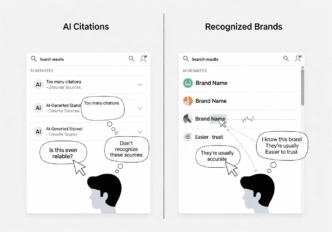
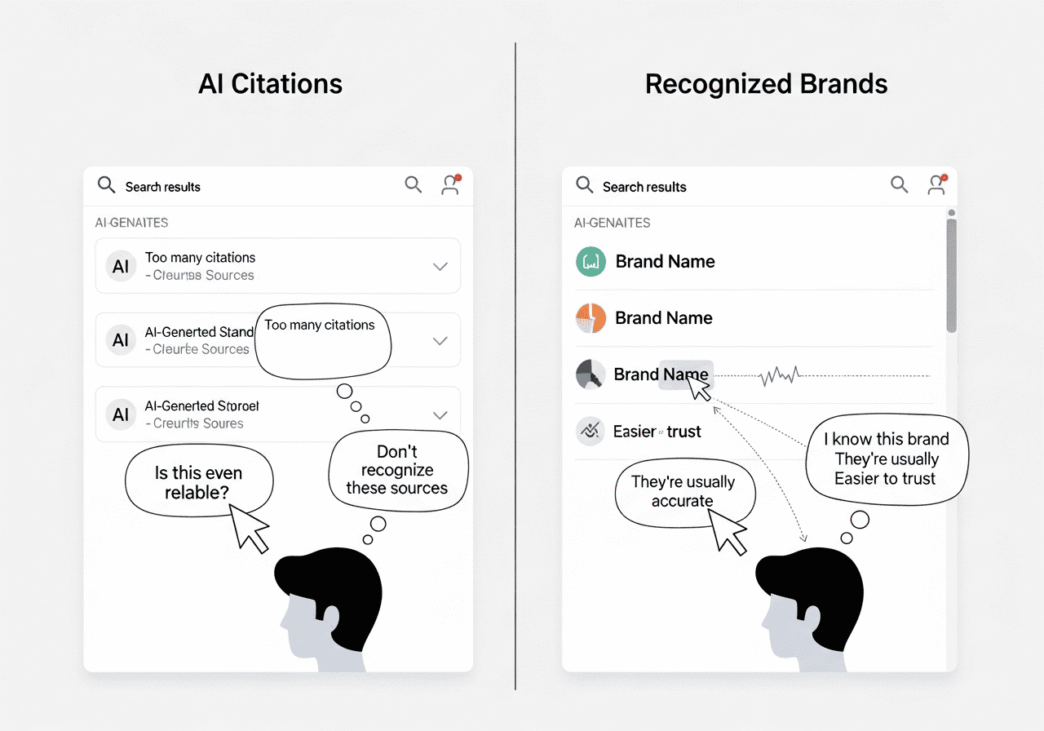
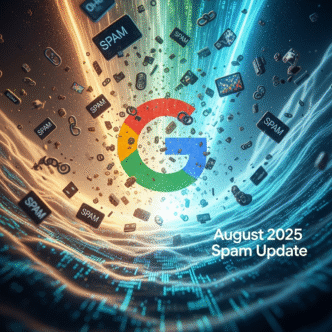
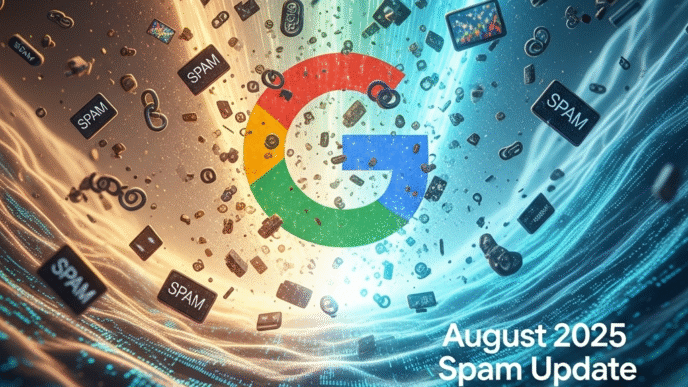
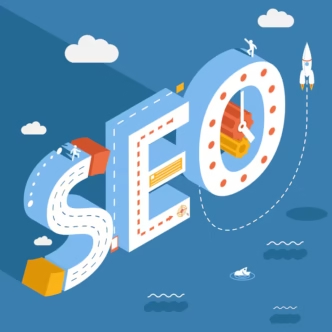


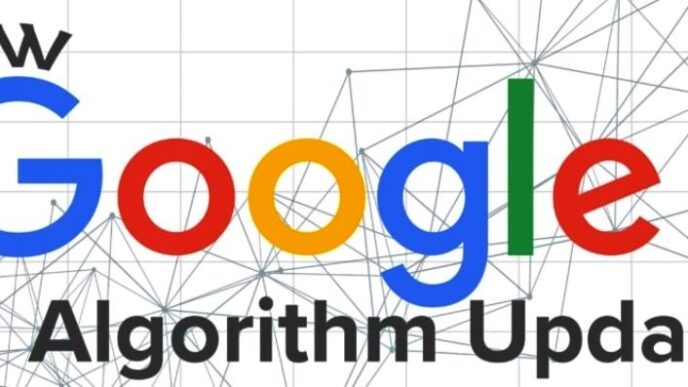
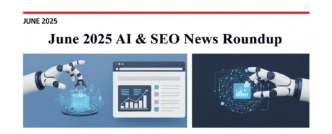
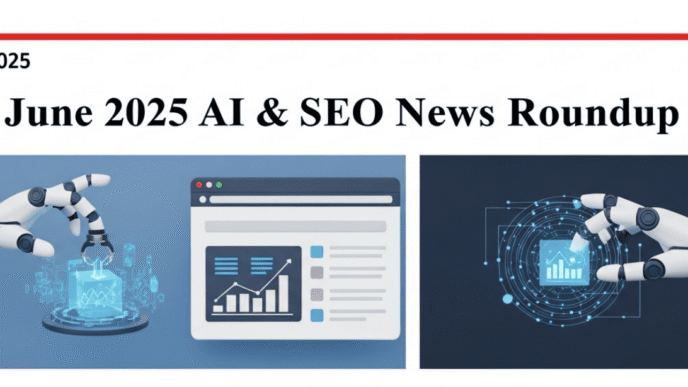

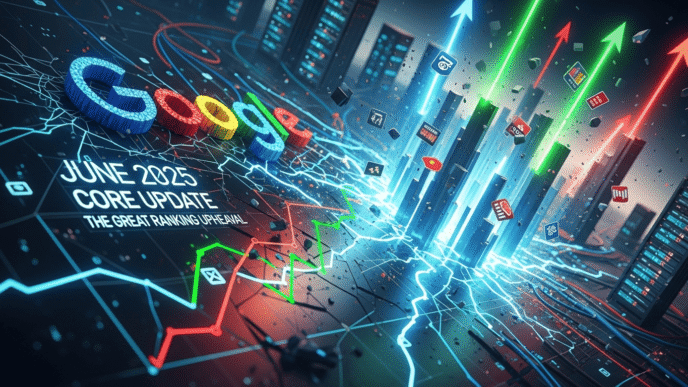
![# Google's AI Summaries Cut Website Clicks by One-Third, New Studies Reveal *Landmark research exposes the dramatic impact of AI Overviews on web traffic, raising existential questions for digital publishing and the open internet* **By [News Reporter] | August 16, 2025** Multiple independent studies released this year reveal that Google's AI Overviews feature is fundamentally reshaping internet traffic patterns, slashing click-through rates to websites by as much as 34.5% and accelerating the shift toward "zero-click" searches that keep users within Google's ecosystem. The findings, based on analysis of millions of search queries and extensive user behavior data, paint a stark picture of disruption across the digital landscape and raise urgent questions about the future sustainability of content creation and journalism in an AI-dominated search environment. ## The Numbers Tell a Stark Story **The most comprehensive study**, conducted by SEO tool provider Ahrefs using Google Search Console data from 300,000 keywords, found that when AI Overviews appear in search results, the click-through rate for the top-ranking result drops by 34.5% compared to traditional search results. In March 2024, the average CTR for the #1 result on AI Overview keywords was 0.073. In March 2025, this had dropped to 0.026, representing a catastrophic decline for websites that previously dominated search traffic. **Performance agency Amsive** corroborated these findings with their analysis of 700,000 keywords across 10 websites and 5 industries, documenting an average 15.49% CTR drop, with much larger losses in specific cases (e.g., -37.04% when combined with featured snippets). **The Pew Research Center** provided the most authoritative user behavior analysis, studying 900 U.S. adults' actual browsing patterns in March 2025. Their findings were unambiguous: Google users who encountered an AI summary were less likely to click on links to other websites than users who did not see one. ## The Zero-Click Revolution Accelerates Perhaps most concerning for content creators is the broader trend toward "zero-click" searches, where users get their answers directly from Google without visiting any external websites. Recent data from SparkToro reveals that 58.5% of Google searches in the U.S. and 59.7% in the EU result in zero clicks. For news publishers specifically, the impact has been devastating. According to Similarweb data, the number of searches for news that result in no click-throughs to news websites has grown from 56% to nearly 69% by May 2025 since Google launched AI Overviews in May 2024. The scope of AI Overviews continues expanding rapidly. Around one-in-five Google searches in March 2025 produced an AI summary, and 13.14% of all queries triggered AI Overviews in March 2025, up from 6.49% in January 2025. ## Publishers Face "Extinction-Level Event" The real-world impact on content creators and news organizations has been severe. Website owner Morgan McBride saw traffic to her crafting website plummet by 70% after AI Overviews launched, with some days making it "hard to even get out of bed" due to the financial devastation. Major news outlets are feeling the squeeze across the board: - 40 of People magazine's top 100 search keywords triggered AI Overviews in May 2025 - 32 keywords for Daily Mail and 21 for The Washington Post now trigger AI summaries - 75% of CBS News' top 100 search keywords that triggered AI Overviews resulted in no click-throughs in May 2025, compared to 54% previously Educational technology company Chegg has gone so far as to sue Google, claiming that AI summaries of search results have hurt Chegg's traffic and revenue, while simultaneously trying to restructure their business model to adapt to the new reality. ## Google's Response: Quality Over Quantity Facing mounting criticism from publishers and content creators, Google has attempted to reframe the narrative around traffic metrics. The company now argues that while overall click volume may decline, the quality of clicks has improved. Google explains that a quality click is one where users don't quickly click back — they stay and read, and claims it is sending "slightly more quality clicks" to websites than a year ago. Elizabeth Reid, Head of Google Search, has positioned AI Overviews as pre-filtering systems, explaining that users clicking through to websites have already consumed introductory information, arriving with specific intent for deeper content or transactions. However, this messaging has been met with skepticism from industry observers. "The fact that Google is pushing this 'AI is not the end of search traffic!' PR now only makes the situation seem more dire," noted TechCrunch's analysis of Google's defensive positioning. ## The Technical Reality Behind the Numbers The studies reveal specific patterns about which types of searches are most affected by AI Overviews: **Query Length Matters**: 8% of one- or two-word searches got a summary, versus 53% of 10+ word searches, indicating that more detailed, informational queries are most likely to trigger AI responses. **Question-Based Searches Hit Hardest**: Question-based searches ("who," "what," "why") generated AI summaries 60% of the time, directly targeting the types of content that have historically driven significant traffic to educational and informational websites. **Informational Content Most Vulnerable**: 88.1% of queries that trigger an AI Overview are informational, affecting blogs, guides, tutorials, and news content more than commercial or transactional searches. ## The Sources Google Prefers Analysis of AI Overview citations reveals Google's content preferences: - Wikipedia, YouTube and Reddit were the most cited sites and accounted for 15% of links in summaries - Government (.gov) sites made up 6% of links in AI summaries vs. 2% in standard results - News sites appeared equally (5%) in both AI summaries and traditional results This data suggests Google's AI system favors authoritative, established platforms over smaller publishers and content creators. ## Industry Response and Adaptation Strategies As the digital marketing industry grapples with this seismic shift, experts are recommending fundamental changes to SEO and content strategies: **Diversification Beyond Google**: "Relying only on Google has always been risky. Look at other ways to drive traffic, including email newsletters, social posts, direct mail campaigns, podcast appearances, and referral programs" advises Burlington Press. **Brand Building Over Traffic**: Industry veterans emphasize that "in a world of zero clicks, visibility doesn't always appear in your analytics, but it still drives influence" and recommend focusing on brand recognition rather than pure traffic metrics. **Content Structure Optimization**: SEO professionals advise "structuring content in a way that makes it easy for Google to feature (such as using clear subheadings, bullet points, and concise answers)" to maintain visibility even without click-throughs. ## Editorial Analysis: A Fundamental Shift in Information Economics The data reveals more than just declining traffic numbers—it exposes a fundamental restructuring of how information flows through the digital economy. For two decades, the internet operated on a symbiotic model: search engines directed users to content creators, who monetized that traffic through advertising, subscriptions, or commerce. AI Overviews represent a profound departure from this model. By synthesizing and presenting information directly, Google essentially becomes both the distributor and the destination, potentially severing the economic relationship between search and content creation. **The Quality vs. Quantity Debate**: Google's argument about "higher quality" clicks deserves scrutiny. While users who do click through after reading an AI summary may indeed be more engaged, this ignores the broader ecosystem effects. If 34.5% fewer people click through, even if the remaining clicks are higher quality, the overall economic impact on publishers remains devastatingly negative. **The Innovation Paradox**: AI Overviews undoubtedly provide value to users seeking quick answers. However, they create a classic free-rider problem: Google benefits from synthesizing others' content while those content creators bear the costs of research, reporting, and fact-checking without receiving proportional compensation through traffic. **Long-term Sustainability Questions**: If content creators can no longer monetize their work through search traffic, what incentives remain for producing high-quality, original information? This could lead to a vicious cycle where the very sources that make AI summaries valuable begin to disappear. ## The Broader Implications The shift toward AI-powered search summaries reflects larger questions about information ownership, attribution, and economic sustainability in the digital age. As "AI-powered searches might be valuable in the short run but they might accelerate the enshittification of the internet in the long run" by undermining the economic incentives for quality content creation. The trend extends beyond Google. General search referral traffic to 1,000 web domains dipped from 12 billion global visits in June 2024 to 11.2 billion in June 2025 — about a 6.7% decline year over year, indicating broader structural changes in how people consume information online. ## What Comes Next Several critical developments will determine the future trajectory of this transformation: **Regulatory Intervention**: As publishers pursue legal action against AI companies, courts and regulators may need to establish new frameworks for content usage and compensation in the AI era. **Alternative Search Adoption**: The decline in Google click-through rates may accelerate adoption of alternative search engines and AI platforms that offer better publisher partnerships. **Business Model Innovation**: Publishers and content creators must rapidly develop new revenue streams that don't depend solely on search traffic, potentially including direct subscriptions, newsletters, and community-building initiatives. **Google's Policy Evolution**: Facing pressure from both users and publishers, Google may need to develop more equitable sharing mechanisms or risk losing the content ecosystem that makes its AI summaries valuable. ## The Bottom Line The data is unambiguous: Google's AI Overviews are fundamentally restructuring internet traffic patterns, with click-through rates declining by one-third or more when AI summaries appear. While users may benefit from faster access to information, the economic model that has sustained content creation for decades is under severe stress. For publishers, content creators, and anyone dependent on search traffic, adaptation is no longer optional—it's existential. The era of optimizing solely for Google rankings is ending, replaced by a more complex landscape requiring diversified strategies, direct audience relationships, and new approaches to value creation. The transformation is still in its early stages, but the trajectory is clear: the age of the click is giving way to the age of the summary, with profound implications for how information is created, distributed, and monetized in the digital economy. --- **Sources and External Links:** - [Ahrefs Study: AI Overviews Reduce Clicks by 34.5%](https://ahrefs.com/blog/ai-overviews-reduce-clicks/) - [Search Engine Land: Google AI Overviews Hurting Click-Through Rates](https://searchengineland.com/google-ai-overviews-hurt-click-through-rates-454428) - [Pew Research Center: Google Users Less Likely to Click When AI Summary Appears](https://www.pewresearch.org/short-reads/2025/07/22/google-users-are-less-likely-to-click-on-links-when-an-ai-summary-appears-in-the-results/) - [Amsive Digital: Google AI Overviews CTR Impact Study](https://www.amsive.com/insights/seo/google-ai-overviews-new-research-reveals-how-to-navigate-click-drop-off/) - [SparkToro: 2024 Zero-Click Search Study](https://searchengineland.com/google-search-zero-click-study-2024-443869) - [Digital Content Next: Google's AI Overviews Linked to Lower Publisher Clicks](https://digitalcontentnext.org/blog/2025/05/06/googles-ai-overviews-linked-to-lower-publisher-clicks/) - [Digiday: AI Platforms Driving More Traffic But Not Offsetting Zero-Click Search](https://digiday.com/media/in-graphic-detail-ai-platforms-are-driving-more-traffic-but-not-enough-to-offset-zero-click-search/) - [Fortune: Google's AI Overviews Quietly Reshaping the Internet](https://fortune.com/2025/07/24/googles-ai-overviews-eating-internet-search-traffic/) - [TechCrunch: Google Denies AI Search Features Are Killing Website Traffic](https://techcrunch.com/2025/08/06/google-denies-ai-search-features-are-killing-website-traffic/) *This report synthesizes data from multiple independent studies conducted throughout 2025, representing the most comprehensive analysis to date of AI Overviews' impact on web traffic and user behavior.*](https://seoprojournal.com/wp-content/uploads/2025/08/Googles-AI-Summaries-Cut-Website-Clicks-332x232.png)
![# Google's AI Summaries Cut Website Clicks by One-Third, New Studies Reveal *Landmark research exposes the dramatic impact of AI Overviews on web traffic, raising existential questions for digital publishing and the open internet* **By [News Reporter] | August 16, 2025** Multiple independent studies released this year reveal that Google's AI Overviews feature is fundamentally reshaping internet traffic patterns, slashing click-through rates to websites by as much as 34.5% and accelerating the shift toward "zero-click" searches that keep users within Google's ecosystem. The findings, based on analysis of millions of search queries and extensive user behavior data, paint a stark picture of disruption across the digital landscape and raise urgent questions about the future sustainability of content creation and journalism in an AI-dominated search environment. ## The Numbers Tell a Stark Story **The most comprehensive study**, conducted by SEO tool provider Ahrefs using Google Search Console data from 300,000 keywords, found that when AI Overviews appear in search results, the click-through rate for the top-ranking result drops by 34.5% compared to traditional search results. In March 2024, the average CTR for the #1 result on AI Overview keywords was 0.073. In March 2025, this had dropped to 0.026, representing a catastrophic decline for websites that previously dominated search traffic. **Performance agency Amsive** corroborated these findings with their analysis of 700,000 keywords across 10 websites and 5 industries, documenting an average 15.49% CTR drop, with much larger losses in specific cases (e.g., -37.04% when combined with featured snippets). **The Pew Research Center** provided the most authoritative user behavior analysis, studying 900 U.S. adults' actual browsing patterns in March 2025. Their findings were unambiguous: Google users who encountered an AI summary were less likely to click on links to other websites than users who did not see one. ## The Zero-Click Revolution Accelerates Perhaps most concerning for content creators is the broader trend toward "zero-click" searches, where users get their answers directly from Google without visiting any external websites. Recent data from SparkToro reveals that 58.5% of Google searches in the U.S. and 59.7% in the EU result in zero clicks. For news publishers specifically, the impact has been devastating. According to Similarweb data, the number of searches for news that result in no click-throughs to news websites has grown from 56% to nearly 69% by May 2025 since Google launched AI Overviews in May 2024. The scope of AI Overviews continues expanding rapidly. Around one-in-five Google searches in March 2025 produced an AI summary, and 13.14% of all queries triggered AI Overviews in March 2025, up from 6.49% in January 2025. ## Publishers Face "Extinction-Level Event" The real-world impact on content creators and news organizations has been severe. Website owner Morgan McBride saw traffic to her crafting website plummet by 70% after AI Overviews launched, with some days making it "hard to even get out of bed" due to the financial devastation. Major news outlets are feeling the squeeze across the board: - 40 of People magazine's top 100 search keywords triggered AI Overviews in May 2025 - 32 keywords for Daily Mail and 21 for The Washington Post now trigger AI summaries - 75% of CBS News' top 100 search keywords that triggered AI Overviews resulted in no click-throughs in May 2025, compared to 54% previously Educational technology company Chegg has gone so far as to sue Google, claiming that AI summaries of search results have hurt Chegg's traffic and revenue, while simultaneously trying to restructure their business model to adapt to the new reality. ## Google's Response: Quality Over Quantity Facing mounting criticism from publishers and content creators, Google has attempted to reframe the narrative around traffic metrics. The company now argues that while overall click volume may decline, the quality of clicks has improved. Google explains that a quality click is one where users don't quickly click back — they stay and read, and claims it is sending "slightly more quality clicks" to websites than a year ago. Elizabeth Reid, Head of Google Search, has positioned AI Overviews as pre-filtering systems, explaining that users clicking through to websites have already consumed introductory information, arriving with specific intent for deeper content or transactions. However, this messaging has been met with skepticism from industry observers. "The fact that Google is pushing this 'AI is not the end of search traffic!' PR now only makes the situation seem more dire," noted TechCrunch's analysis of Google's defensive positioning. ## The Technical Reality Behind the Numbers The studies reveal specific patterns about which types of searches are most affected by AI Overviews: **Query Length Matters**: 8% of one- or two-word searches got a summary, versus 53% of 10+ word searches, indicating that more detailed, informational queries are most likely to trigger AI responses. **Question-Based Searches Hit Hardest**: Question-based searches ("who," "what," "why") generated AI summaries 60% of the time, directly targeting the types of content that have historically driven significant traffic to educational and informational websites. **Informational Content Most Vulnerable**: 88.1% of queries that trigger an AI Overview are informational, affecting blogs, guides, tutorials, and news content more than commercial or transactional searches. ## The Sources Google Prefers Analysis of AI Overview citations reveals Google's content preferences: - Wikipedia, YouTube and Reddit were the most cited sites and accounted for 15% of links in summaries - Government (.gov) sites made up 6% of links in AI summaries vs. 2% in standard results - News sites appeared equally (5%) in both AI summaries and traditional results This data suggests Google's AI system favors authoritative, established platforms over smaller publishers and content creators. ## Industry Response and Adaptation Strategies As the digital marketing industry grapples with this seismic shift, experts are recommending fundamental changes to SEO and content strategies: **Diversification Beyond Google**: "Relying only on Google has always been risky. Look at other ways to drive traffic, including email newsletters, social posts, direct mail campaigns, podcast appearances, and referral programs" advises Burlington Press. **Brand Building Over Traffic**: Industry veterans emphasize that "in a world of zero clicks, visibility doesn't always appear in your analytics, but it still drives influence" and recommend focusing on brand recognition rather than pure traffic metrics. **Content Structure Optimization**: SEO professionals advise "structuring content in a way that makes it easy for Google to feature (such as using clear subheadings, bullet points, and concise answers)" to maintain visibility even without click-throughs. ## Editorial Analysis: A Fundamental Shift in Information Economics The data reveals more than just declining traffic numbers—it exposes a fundamental restructuring of how information flows through the digital economy. For two decades, the internet operated on a symbiotic model: search engines directed users to content creators, who monetized that traffic through advertising, subscriptions, or commerce. AI Overviews represent a profound departure from this model. By synthesizing and presenting information directly, Google essentially becomes both the distributor and the destination, potentially severing the economic relationship between search and content creation. **The Quality vs. Quantity Debate**: Google's argument about "higher quality" clicks deserves scrutiny. While users who do click through after reading an AI summary may indeed be more engaged, this ignores the broader ecosystem effects. If 34.5% fewer people click through, even if the remaining clicks are higher quality, the overall economic impact on publishers remains devastatingly negative. **The Innovation Paradox**: AI Overviews undoubtedly provide value to users seeking quick answers. However, they create a classic free-rider problem: Google benefits from synthesizing others' content while those content creators bear the costs of research, reporting, and fact-checking without receiving proportional compensation through traffic. **Long-term Sustainability Questions**: If content creators can no longer monetize their work through search traffic, what incentives remain for producing high-quality, original information? This could lead to a vicious cycle where the very sources that make AI summaries valuable begin to disappear. ## The Broader Implications The shift toward AI-powered search summaries reflects larger questions about information ownership, attribution, and economic sustainability in the digital age. As "AI-powered searches might be valuable in the short run but they might accelerate the enshittification of the internet in the long run" by undermining the economic incentives for quality content creation. The trend extends beyond Google. General search referral traffic to 1,000 web domains dipped from 12 billion global visits in June 2024 to 11.2 billion in June 2025 — about a 6.7% decline year over year, indicating broader structural changes in how people consume information online. ## What Comes Next Several critical developments will determine the future trajectory of this transformation: **Regulatory Intervention**: As publishers pursue legal action against AI companies, courts and regulators may need to establish new frameworks for content usage and compensation in the AI era. **Alternative Search Adoption**: The decline in Google click-through rates may accelerate adoption of alternative search engines and AI platforms that offer better publisher partnerships. **Business Model Innovation**: Publishers and content creators must rapidly develop new revenue streams that don't depend solely on search traffic, potentially including direct subscriptions, newsletters, and community-building initiatives. **Google's Policy Evolution**: Facing pressure from both users and publishers, Google may need to develop more equitable sharing mechanisms or risk losing the content ecosystem that makes its AI summaries valuable. ## The Bottom Line The data is unambiguous: Google's AI Overviews are fundamentally restructuring internet traffic patterns, with click-through rates declining by one-third or more when AI summaries appear. While users may benefit from faster access to information, the economic model that has sustained content creation for decades is under severe stress. For publishers, content creators, and anyone dependent on search traffic, adaptation is no longer optional—it's existential. The era of optimizing solely for Google rankings is ending, replaced by a more complex landscape requiring diversified strategies, direct audience relationships, and new approaches to value creation. The transformation is still in its early stages, but the trajectory is clear: the age of the click is giving way to the age of the summary, with profound implications for how information is created, distributed, and monetized in the digital economy. --- **Sources and External Links:** - [Ahrefs Study: AI Overviews Reduce Clicks by 34.5%](https://ahrefs.com/blog/ai-overviews-reduce-clicks/) - [Search Engine Land: Google AI Overviews Hurting Click-Through Rates](https://searchengineland.com/google-ai-overviews-hurt-click-through-rates-454428) - [Pew Research Center: Google Users Less Likely to Click When AI Summary Appears](https://www.pewresearch.org/short-reads/2025/07/22/google-users-are-less-likely-to-click-on-links-when-an-ai-summary-appears-in-the-results/) - [Amsive Digital: Google AI Overviews CTR Impact Study](https://www.amsive.com/insights/seo/google-ai-overviews-new-research-reveals-how-to-navigate-click-drop-off/) - [SparkToro: 2024 Zero-Click Search Study](https://searchengineland.com/google-search-zero-click-study-2024-443869) - [Digital Content Next: Google's AI Overviews Linked to Lower Publisher Clicks](https://digitalcontentnext.org/blog/2025/05/06/googles-ai-overviews-linked-to-lower-publisher-clicks/) - [Digiday: AI Platforms Driving More Traffic But Not Offsetting Zero-Click Search](https://digiday.com/media/in-graphic-detail-ai-platforms-are-driving-more-traffic-but-not-enough-to-offset-zero-click-search/) - [Fortune: Google's AI Overviews Quietly Reshaping the Internet](https://fortune.com/2025/07/24/googles-ai-overviews-eating-internet-search-traffic/) - [TechCrunch: Google Denies AI Search Features Are Killing Website Traffic](https://techcrunch.com/2025/08/06/google-denies-ai-search-features-are-killing-website-traffic/) *This report synthesizes data from multiple independent studies conducted throughout 2025, representing the most comprehensive analysis to date of AI Overviews' impact on web traffic and user behavior.*](https://seoprojournal.com/wp-content/uploads/2025/08/Googles-AI-Summaries-Cut-Website-Clicks-688x387.png)